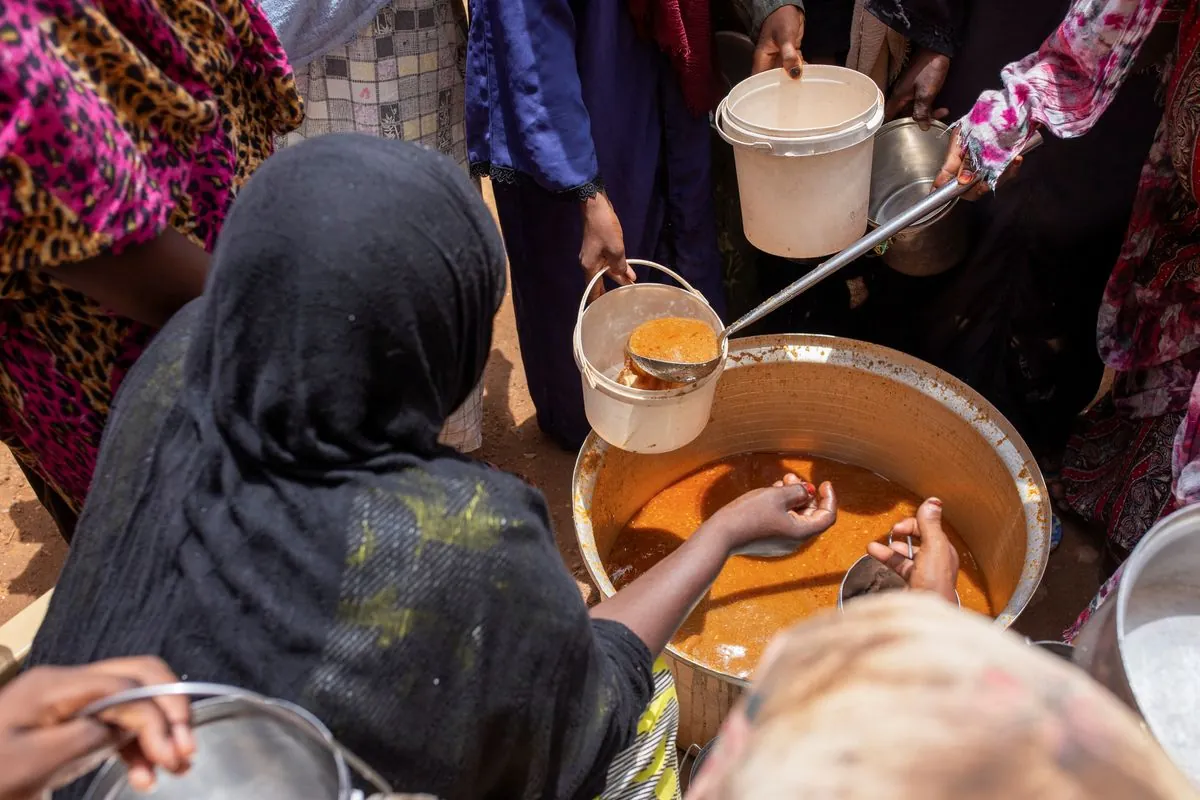In Sudan, a country with a rich history dating back to ancient Kushite kingdoms, community kitchens have become a lifeline for millions facing acute hunger. However, these vital operations are now under threat as the ongoing conflict, which began 18 months ago, continues to escalate.
Volunteers managing these kitchens across Sudan's diverse regions, from the capital Khartoum to the western Darfur area, report increasing difficulties in providing aid. The country, once the largest in Africa before South Sudan's independence, is now grappling with its most severe hunger crisis to date.
According to United Nations officials, over half of Sudan's population of approximately 45 million people are experiencing acute hunger. This crisis is particularly devastating in a nation known for its agricultural potential, with cotton being a major export.
The situation has been exacerbated by attacks on volunteers and looting of supplies. One volunteer from Bahri, part of the greater Khartoum area, described an incident where troops in Rapid Support Forces (RSF) uniforms stole both cash and food supplies intended for the kitchens. Such occurrences have become more frequent since July 2024, with volunteers reporting at least 25 incidents in Khartoum state alone.
"Community kitchens in Sudan are a lifeline for people who are trapped in areas with ongoing conflict. By supporting them, WFP is able to get food into the hands of hundreds of thousands of people at risk of famine, even in the face of severe access constraints."
The increased international support for these kitchens has paradoxically made them more vulnerable to attacks. Volunteers, once relatively safe, now find themselves targeted by looters who view the kitchens as sources of food and resources.
Both the Sudanese Armed Forces and the RSF have been implicated in attacks on volunteers, often suspecting them of collaborating with the opposing side. This distrust stems partly from the volunteers' association with pro-democracy movements that led to the ousting of former autocrat Omar al-Bashir in April 2019.
The conflict has severely impacted Sudan's economy, with the Sudanese pound falling approximately 300% against the dollar on the parallel market since the war began. This economic downturn has made it increasingly difficult for kitchens to operate consistently, with some only able to provide meals once a week in areas at risk of famine.
International donors have been hesitant to directly fund these unregistered community groups, leading to delays in aid distribution. However, organizations like the World Food Programme have begun partnering with local aid groups to support the kitchens, spending over $2 million since July 2024.
As the crisis deepens, the need for these community kitchens continues to grow. In a country with a median age of about 19 years, the impact on the young population is particularly concerning. The situation is further complicated by Sudan's diverse climate and geography, which ranges from desert in the north to tropical in the south, affecting food production and distribution.
Despite these challenges, volunteers remain committed to their mission. As one spokesperson for volunteers in Sharq al-Nil stated, "As the war goes on, we'll see more people reaching rock bottom." The resilience of these community kitchens remains crucial in addressing Sudan's hunger crisis, even as they face mounting obstacles in their efforts to provide life-saving aid.
